What's new

Help us get this survey to young millennials with rheumatic disease
Despite advances in clinical care, millennial young adults with rheumatic disease continue to face challenges finding work and staying productive at work. Workplace policies can help overcome these challenges, but too often they’re aimed at older adults. An IWH study is currently under way to understand what supports millennials with rheumatic disease need from employers. This survey is a first step. Please help us get it into the hands of young workers with lupus, juvenile arthritis, scleroderma and other forms of rheumatic disease. Click on the survey or find out more about this project.

Grant round-up: Emerging issues and innovative prevention approaches seen in latest IWH projects
This latest grant round-up features three projects including: a partnership grant examining accommodation and communication issues related to chronic, episodic conditions; a study on the use of and attitudes towards cannabis at work; and a project on integrating OHS and health promotion.

Men and women with arthritis have same workplace support needs, but different levels of access
Do men and women with arthritis have different workplace accommodation needs? And do they differ in their access to workplace supports to meet these needs? A study published by IWH’s Dr. Monique Gignac recently examined these questions. It found unequal levels of access to support, which can be explained by the types of work that men and women do.

Now hiring: Research analyst for one-year contract
We are seeking a research analyst for a 12-month, full-time contract to be part of a project examining the concept of occupational health and safety (OHS) vulnerability across provinces. Deadline for applications is Friday, October 5.

Economic analysis shows gains of accommodating people with mental illness
A study examining the business case for employing people with mental illnesses found a net benefit in each of the workplaces in which an accommodation cost-benefit evaluation was conducted. For employers, the economic benefits ranged from two to seven times the costs incurred. For the accommodated workers, they ranged from four to 12 times the costs.

How much do employers in Ontario spend on OHS a year?
The financial costs of work-related injury and illness may be well known, but limited information is available on what employers spend to control or eliminate the causes of work-related injury and illness. A new Issue Briefing describes the results of a 2017 study to estimate occupational health and safety expenditures among employers from 17 economic sectors in Ontario, Canada.

Study: Supervisors' first reaction to injury affects return-to-work outcomes
A supervisor’s supportive reaction to an injury—for example, by expressing empathy and reassurance instead of skepticism and blame—significantly increases the likelihood that the injured worker will successfully return to work. That’s according to a recent study conducted by a research team at the Institute for Work & Health (IWH) and Australia’s Monash University.

Congrats to our 2018/19 Syme fellows
Two early-career researchers have been awarded the 2018/19 S. Leonard Syme Training Fellowships in Work & Health. The two fellows are Corey McAuliffe, PhD candidate in social and behavioural health sciences at the University of Toronto’s Dalla Lana School of Public Health, and Julia Goyal, PhD candidate in public health and health systems at the University of Waterloo’s School of Public Health and Health Systems. Congratulations Corey and Julia. We look forward to working with you.

Media release: Risk of workplace violence increasing among women in Ontario’s education sector
Women working in Ontario’s education sector are four to six times more likely than their male counterparts to require time off work because of being physically assaulted on the job. This is according to a study by the Toronto-based Institute for Work & Health (IWH), recently published online in Occupational and Environmental Medicine.
Save the date: Dr. Paul Demers delivers IWH’s annual Nachemson lecture November 28
The Institute’s Alf Nachemson Memorial Lecture takes place this year on November 28. The lecture will be delivered by Dr. Paul Demers, director of the Occupational Cancer Research Centre (OCRC). In this role, Demers has been working with colleagues and collaborators across the country to develop and improve the surveillance of work-related cancers, establish their human and economic burden, and draw on research to develop policy recommendations aimed at preventing exposure. The event, to take place at the Design Exchange in downtown Toronto, is free and open to the public.

Working long hours increases risk of diabetes in women but not men: study
Women who work 45 hours or more a week face a 63 per cent higher risk of developing diabetes than women who work 35-44 hours. Among men who work long hours, however, the incidence of diabetes tends to go down. This is according to a study by the Institute for Work & Health (IWH) and Institute for Clinical Evaluative Sciences, which followed a sample of 7,000 Ontario workers over 12 years. The findings, published in July in an open access article in BMJ Diabetes Research & Care, highlight the importance of work and health research that includes sex/gender-based analyses.

Now hiring: Research associate wanted for a one-year contract
Help coordinate a large partnership research grant examining chronic illness needs in the workplace. As a Research Associate, your primary duties would include programming surveys, coordinating and conducting interviews and focus groups, organizing workshops and working with team members to analyze qualitative data. Apply now or help us spread the word. This job posting closes August 31.

Get your Summer 2018 issue of At Work
What can we learn from sex/gender analyses of work exposures and health? That women who work long hours face a greater of risk of developing diabetes, but not men. Or that men and women with arthritis may have the same needs for workplace support, but different access to those supports. Read about this research in a special package on sex/gender analysis in the latest issue of At Work. Also, learn about a study that found benefits outweigh costs for workplaces that accommodate people with mental illness.

IWH Updates - Summer 2018
Save the date: Dr. Paul Demers takes the podium at IWH’s annual Nachemson lecture ~ New projects posted on the IWH website
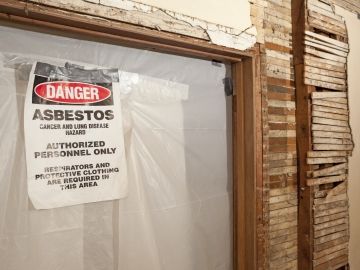
What research can do: IWH estimate of societal costs helps Ottawa make case for asbestos ban
IWH's analysis of the economic burden of cancer cases linked to work-related asbestos exposure helps the federal government make the case for a wider ban. Read about this impact case study.
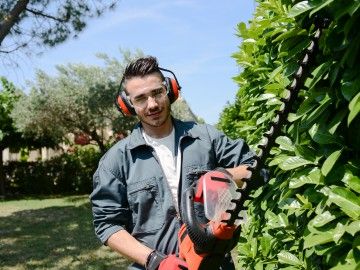
Skin cancers due to sun exposure at work costing Canada millions a year
As we head into another summer here in Canada, workplaces should be especially mindful of protecting outdoor workers from harmful sun exposure. An economic burden study by Institute for Work & Health (IWH) Senior Scientist Dr. Emile Tompa puts the costs in Canada of non-melanoma skin cancers due to work-related sun exposure diagnosed in just one year (2011) at almost 35 million dollars. Skin cancers are the most common form of cancer in Canada. The risks of sun exposure on the job are the highest for people doing construction, road work, farming, landscaping, and transportation and warehousing.

Watch again: A systematic review of workplace interventions to manage depression
The research literature to date suggests that cognitive behavioural therapy (CBT) can help people with depression stay at work—and CBT with a focus on work can help people return to work after a depression-related absence. These findings from a systematic review, on workplace interventions to manage depression, were the focus of an IWH Speaker Series presentation in January 2018. If you missed that presentation or want to watch it again, it's available as a slidecast.

Now recruiting Manitoba construction firms for an OHS leading indicators study
How does your construction company measure up on safety? IWH and the Construction Safety Association of Manitoba are teaming up on a project to develop health and safety leading indicators for the construction sector. They’re also building benchmarks for the province’s construction workplaces. The project is now recruiting construction firms operating in Manitoba of all types and sizes to complete an online survey. Watch and share the recruitment video to help us spread the word. Or go to our project page for recruiting info.
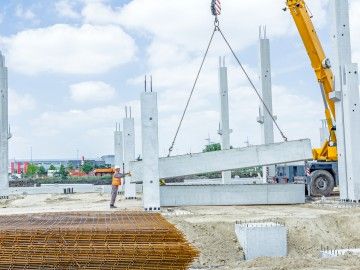
Boost OHS training outcomes with embedded essential skills content
Are you concerned that literacy or numeracy skills gaps among workers would get in the way of their uptake of job skills or OHS training? If so, embedding essential skills content in the job or OHS training could help. Our recent study of hoisting and rigging learners showed better scores among those who took the training with embedded essential skills. A guide based on that research is now available to download.

Guide to support workers with depression now available to download
If someone you work with or supervise experiences depression —or if you have symptoms yourself—there are ways to offer and seek support. Our new Evidence-informed guide to supporting people with depression in the workplace lays out tips and suggestions. It’s aimed at helping people with depression cope with symptoms while working or returning to work after an episode of depression. Users may include individuals with depression, managers, co-workers, human resources staff, union representatives and worker representatives. When it comes to supporting workers with depression, everyone can help.
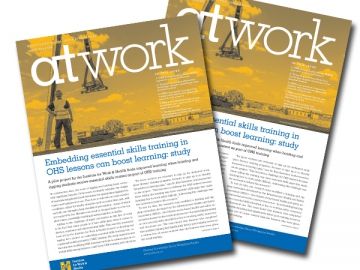
The Spring 2018 At Work is out
In this issue... what researchers, workers and managers say about how to support employees with depression; the link between facilities near or at work—such as playing fields, gyms and shower rooms—and workers' exercise level; the economic burden of non-melanoma skin cancers due to sun exposure at work, and more. If you're not getting the issue in your inbox, make sure to subscribe!

IWH Updates - Spring 2018
Institute for Work & Health welcomes new board member ~ IWH 2018 Activity Plan available online ~ Institute now accepting applications for Syme fellowships

What research can do: OHS change model informs WSPS’s approach to small businesses
When WSPS consultants reach out to small businesses, they now look especially for an individual at each business who's passionate about health and safety issues. That approach is based on a model that came out of an IWH study examining how organizations make breakthrough change. Read a summary of the impact case study in this article.

On Saturday, April 28, mark National Day of Mourning
This Saturday, April 28, is the National Day of Mourning to remember those who have died, or been left injured or ill, because of their work. Mark the day by watching the video or posting a tribute on the WSIB Day of Mourning site. Join the CCOHS social media “thunderclap.” Attend a commemorative event listed by Workers Health and Safety Centre. These are just some of the ways to mark the day.

IWH now accepting applications for Syme fellowships
The Institute for Work & Health is now accepting applications for its 2018-2019 S. Leonard Syme Training Fellowships in Work & Health. The fellowships are for early-career researchers at the master's or doctoral level intending to study work and health. Typically, the Institute awards three fellowships of $5,000 each competition, although it occasionally awards one major fellowship of up to $15,000. The deadline for applications is June 8.

IWH Systematic Review Workshop—May 14-16: Only a few spots left
The Institute for Work & Health's Spring 2018 Systematic Review Workshop is set to take place May 14-16 in Toronto. Designed for clinical trainees, clinicians, decision-makers, academics and researchers, this popular workshop teaches you how to plan, conduct and communicate the results of a systematic review. If interested, please register soon. Space is limited and almost full.

Now recruiting: managers who have accommodated workers with chronic diseases
We need your help. If you’re a manager or supervisor with experience accommodating employees with chronic physical or mental health conditions, we’d like to hear from you for a study on talking about workplace accommodation needs. Tell us about the challenges you faced supporting employees with chronic health conditions while also balancing privacy concerns. Your participation would consist of a confidential phone interview of about 30 to 40 minutes. If you’re interested, please email jbowring@iwh.on.ca or call 1-855-884-1416.
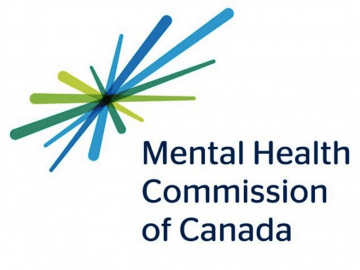
IWH economist provides business case for hiring workers with mental illness
A summary report released today the Mental Health Commission of Canada (MHCC), A clear business case for hiring aspiring workers, suggests opening the doors to aspiring workers living with mental illness is a win-win for employers and employees. The report summarizes an in-depth MHCC research study that examined the costs and benefits of recruiting and retaining people living with mental illness. Institute for Work & Health Senior Scientist Dr. Emile Tompa conducted the cost-benefit analysis for the study. According to the report, employer’s projected net savings over the five-year span due to accommodating a worker ranged from approximately $56,000 to $204,000.
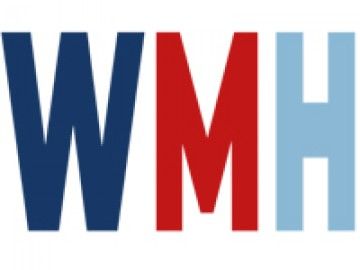
Work, Migration and Health Forum—May 8-9: IWH researcher discusses newcomers and OHS
In Canada, migrant workers and newcomers are among those disproportionally affected by precarious employment. On May 8-9, the Work, Migration and Health Forum will examine the labour experiences of Canada’s migrants and newcomers, including temporary foreign workers, new immigrants, refugees, international students and undocumented migrants. IWH’s Dr. Basak Yanar, one of the keynote speakers, discusses newcomers’ experiences looking for work and finding information about health and safety. Registration is free for newcomers and migrants.

Webinar: Supporting young adults with chronic episodic health conditions
Millennials represent a growing proportion of the labour market. A chronic, episodic disease can be a source of unpredictability that add to the challenges these young adults face in finding and keeping a job. On Thursday, April 4, hear Dr. Arif Jetha discuss the unique labour market experiences of young people with chronic conditions. Learn about accommodations that may help them, as well as the barriers they face accessing these workplace supports. This free webinar is offered by the Workplace Wellness and Disability Prevention Institute.

IWH welcomes new board member
The Institute for Work & Health has a new board member: Dr. Andréane Chénier. Chénier is a national representative specializing in health and safety for the Canadian Union of Public Employees (CUPE). She brings the public-sector worker perspective as a representative on many committees, including the Ministry of Labour’s Prevention Council, where she’s the labour co-chair on the Section 21 committee for health care. Chénier has master's degree in immunology from the University of Ottawa, and a doctorate in biomolecular sciences from Laurentian University.